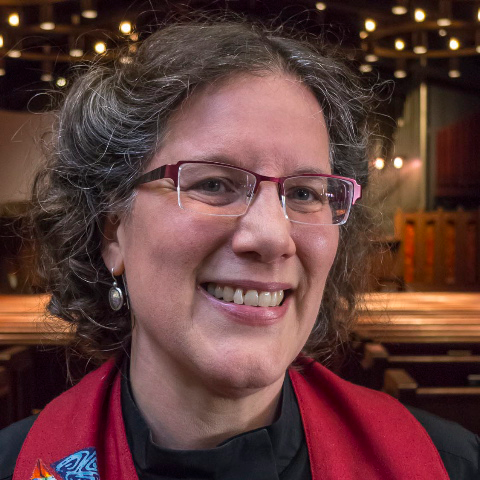{podcast_episode 188}
Amazing Grace…. how sweet the sound… that saved a soul like me… Something changed in this hymn when we included it in our hymnal. The word wretch was replaced with soul. I’ve always loved the hymn. But like others who encouraged the change, I’ve sometimes choked on that word. I choked on the suggestion that I might be a wretch. I’ve sensed that being a wretch – being flawed at all – meant I was unacceptable. Unloveable. So in order to avoid seeing myself as a wretch, I tried to be perfect.
The sermon this morning is about love. Our need for it. Our search for it. How we deserve it. And our struggle to show up in places and in moments we think real love is possible…
The struggle is what keeps us from showing up. What keeps us paralyzed… hesitant… cautious… self-protective – instead of open, engaged, available. So many of us, at times in our lives have settled for living what I call ‘prophylactic lives’, where we dawn protection – especially from the painful judgment or criticism we fear – anything that triggers worry about not being pretty enough, or funny enough, or interesting enough.
This morning, I want to talk about the drilled-in feeling of ‘not enough.’
Author and social researcher, Brené Brown, points out that the majority of people living in today’s hyper-intensive world, go to bed most every night feeling like they didn’t get enough done. And they wake up every morning feeling like they didn’t get enough sleep. And in between waking and sleeping every day, we worry about being ‘safe enough,’ ‘rich enough,’ ‘thin enough,’ ‘smart enough’… We’re taught to cultivate, in our own minds, an awareness of scarcity.
“And, do you know the number one casualty of living in a scarcity culture?” she asks.
Vulnerability.
“Well, of course!” you might say. “Who wants vulnerability? Vulnerability is a flaw. It’s a weakness. We’re supposed to cover up our vulnerabilities!” And so vulnerability is a justifiable reason to shut down. To choose NOT to show up.
That’s fine. Until we encounter the moments when we HAVE TO show up.
Like the time, early in my career where I was candidating at a new church. And for the final sermon – the sermon they would vote on whether or not to call me – I went in to preach that morning with a zit – roughly the size of Rhode Island – right on the tip of my nose. And I had to talk to people as if nothing was wrong.
This morning’s sermon is about imperfect people who try to be perfect.
Because trying to be perfect is often the number one response to feeling vulnerable. Because we think being perfect – or at least appearing perfect – will make everything easier. But the thing we learn – the thing I learned from years of effort – was that being perfect is painful too. Perhaps even more painful than being a wretch.
Being perfect means always trying harder. Always doing more. Always having to have the right answer.
Being perfect is lonely. It means never being able to admit that you need help, that you don’t know, that you can’t make it on your own.
Writer, Albert Camus said it well. He said, “Most people never realize how much effort it takes others merely to be normal.” Imagine the effort it takes to be perfect.
Does this sound familiar?
Did you have older brothers or sisters got more of your parent’s attention and approval than you?
Ever gotten a “B” and been told you should have gotten an “A”?
Ever compare your hair, skin, or physique with movie stars or models in magazines?
Didn’t measure up on someone’s good parenting scale?
Scored low on self-evaluations in Cosmo or GQ?
Saying yes to any of these does not mean you have a problem with perfectionism. But perfectionism becomes a problem when we notice these same voices offering this same criticism in our head years later. When we become the ones who carry the voices of teachers, parents, siblings, bosses… Voices that tell us to be a little faster, a bit cleaner, more thorough, more conscientious or show extra patience?
I grew up with a chorus line of voices in my head. Brene Brown points out that these voices comprise our ego – what she calls, ‘the hustle committee.’ Always shouting, ‘More!’ ‘Faster!’, ‘Harder!’ In the beginning, we’re led to believe these voices are on our side. But after a while it begins to seem that all they do is find different ways to tell us we’re not enough – to call us a wretch. And, if you’re like me, we can begin to hate ‘the committee’.
The Rev. Barbara Merritt once wrote out the propaganda being promoted by her committee. Her list went something like this:
- Perfect children are popular and always friendly.
- Always neat, clean and polite.
- They’re always polite to their parents,
- never get angry.
Later, it turned into
- perfect professionals are always calm and know what to do.
- They never ask for help
- always prompt,
- careful and competent.
- They’re at work early and stay late.
- They finish their work every day.
- never procrastinate.
- The perfect artist always sells their work.
- The perfect manager always gets promoted.
- The perfect teacher has all eager, bright kids who score high.
- Perfect ministers love EVERYONE!
- ALL THE TIME!
- NO EXCEPTIONS!!
- and they write perfect sermons every week.
It sounds frighteningly like my list. And the most hurtful thing MY committee got me to believe: Perfect people are perfectly lovable.
Sound familiar?
Years ago when in seminary at PSR, I was part of the Numinous Circle the young adult group that came out of this church. And in the group was young woman named Susan told me a story that was part of her ‘not enough’ narrative I’ve never forgotten. She said, as a little girl, she got a dollar a week allowance. But instead of spending it on herself, she saved all her pennies, wrapped them in tissue paper and tied them at the top with Scotch tape. On the tag she wrote: “To God.” Then, climbing the ladder to the attic – where God lived – she left them. So certain was she that she didn’t measure up that she even had to bribe God. Each week she left the new bundle where the last one had been taken. And it wasn’t ‘till years later that she discovered that it was not God, but in fact, her big sister, who was accepting her contrition.
The problem with perfection is that it makes us feel we have to bribe people with time, compliments – or money – in order to deserve love. What of yourself have you given away to be perfect?
Problems with perfection can also be seen when we deny our imperfections. At twelve, I moved to a new school where I had two ginormous fears. First, that I would have no friends. And second that it was the first time in my life where we were going to have to dress out for PE. On the first day I met Spence. It was also his first day. We helped each other through those first awkward days. But the following Monday – our first day of PE – Spence told me that he was scared – intimidated – about showering with the “bigger boys” in the afternoon. When he asked if I was, I didn’t want to be wimpy, so I said, “No, why should I be?” Denying my imperfections ended up costing me Spence’s friendship. He didn’t trust me anymore. Especially when he ran across me during that first semester in the locker room – always carrying at least five towels at a time.
It is tempting to try and hide behind veils of perfection. Disguising our flaws. Covering our insecurities.
But it becomes a problem when we give up who we are and try to be something we’re not. When we can’t tell the difference between the voices of the committee and our own –true – voice. When we spend all our energy trying to be perfect and it’s still not satisfying.
It is not satisfying because while looking for self satisfaction, we end up practicing self absorption and self obsession. Forrest Church, minister of All Souls in New York City comments that ‘just as self righteousness is the opposite of righteousness, self consciousness is the opposite of consciousness.” When we spend so much energy and attention on ourselves – trying to be perfect – we fail to listen and connect with the people who want to know us. The problem with trying to be perfect is that we end up becoming perfect strangers.
Amazing Grace, how sweet the sound, that saved a wretch like me. It’s still tough to say. But maybe not because “wretch” translates as “imperfect.” But because “imperfect” implies vulnerability that’s uncomfortable. That we’d rather avoid.
“But the problem with avoiding vulnerability,” warns Brene Brown, “… is that vulnerability is the birthplace of everything we are hungry for. Joy, creativity, innovation, love, faith, connection, meaning…” It’s a lousy trade: perfection or connection… It’s a choice we have to think carefully about because it’s often hard to love something that’s perfect.
It’s easy, on the other hand, to love this Congregation. With 450 members and 4 hundred thousand opinions – we are far from perfect. We have far more examples of how we have failed to solve the world’s problems – or even our own – than we have examples of success. But there is one thing that I believe about this community: that when we figure out how to struggle together – with our eyes and our hearts wide open, nothing will be impossible for us.
But we need to see beyond others’ efforts at perfection. And be willing to let others look beyond ours.
When I was an intern in Toronto, my intern committee, in my midterm evaluation, said they really wanted to know me but worried that I was trying too hard to be perfect. They said it felt like there was a veneer they had to look through to get close to me. My intern committee had to get to know me, it was their job. What happens when we hold up all this perfection and people don’t have to get to know us?
Sharing our less than perfect sides is hard… and risky. It goes against every edict the committee tells us. But it is often the most important thing that people look for when they are trying to connect. It is our humanness, not our godliness that is most lovable about us. That is what Spence was looking for. That is what my intern committee was looking for. That’s what we are all looking for when we want love. Approval is nice but connection goes much deeper. Approval is for what we show. Connection is for who we are. Approval validates our image. Connection comforts our soul.
We are not perfect. But that’s because we are not done yet. And it is our “undoneness” – our frayed edges, our tatteredness, our tenderness – that attracts love and helps us connect. In a sense, it is our wretchedness that works for us, not against us. IF we let it show.
That is grace: Love which we don’t have to earn, don’t have to lie for, or get through bribes. Love that comes without standards or justification, but simply because we welcome it and have room. That is grace. It is amazing and we deserve it. Believing the propaganda that the committee tells us, only hurts us.
 It takes a willingness to show up and be vulnerable to discover that we are lovable even though we are not perfect… to understand we are lovable because we’re not perfect. But arriving at such a place has power to offer… a power to do something tremendously important: to march upstairs up to where that committee of voices meets in our head, break down that door and fire every one of them.
It takes a willingness to show up and be vulnerable to discover that we are lovable even though we are not perfect… to understand we are lovable because we’re not perfect. But arriving at such a place has power to offer… a power to do something tremendously important: to march upstairs up to where that committee of voices meets in our head, break down that door and fire every one of them.
We need to stand up to these voices so that we can say, “Ronald, you’re a bum! What makes Elizabeth so lovable has nothing to do with the clothes she wears. It’s because she shows up and fights dragons when they threaten the things she loves!”
This morning’s sermon is about love – showing up for it – even though some of us – most of us – all of us – have a zit the size of Rhode Island affixed somewhere in our life. Someday, I promise, if you reach a state of heightened spiritual discipline, you too may get a chance to stand in the pulpit and preach a sermon with one on your nose.
Until that day, let me make you this promise – if come here – tender but open – this faith will love you. If you choose love over ego – this congregation – these people – will love you. If you risk putting forth your best – and most imperfect self – when it really matters – I will love you – And you you’ll never have to prove anything to anyone, anytime, ever. To know THAT is to know the grace that saves souls – and wretches – like me.
Amazing Grace…. how sweet the sound… that saved a wretch like me. I cannot pretend I am not a wretch … It does me no good. I know. I once was lost… but now I’m found. Was blind but now I see.
To the Glory of Life.
Copyright © 2014, Rev. Greg S. Ward. All Rights Reserved.


















